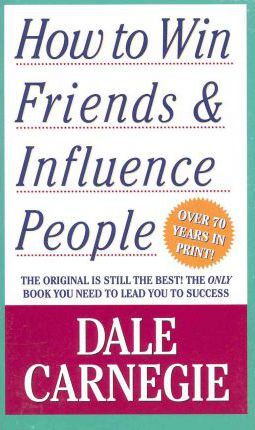Last Updated on May 2, 2022 by Chin Yi Xuan
In Part 1 of this article, we’ve discussed 4 key people skills as outlined in the amazing personal development classic: How to Win Friends & Influence People by Dale Carnegie.
In Part 2, let’s explore 5 more important (yet surprisingly simple) people skills mentioned in this book!
p
Table of Contents
(5) Admit your mistakes
We all understand how hard it is to put down our ego to admit our mistakes upon making them sometimes.
At times, although we realized that we’ve made a mistake, many of us tend to choose to be arrogant, stubborn and persistent in the same standpoint which may results in an endless argument.
Here’s a good commercial example of admitting to mistakes:
A customer found a dead lizard in the Salted Egg Snacks sold by the Singapore-based food company Irvins. Rather than avoiding this incident or trying to cover it up, Irvins conducted their apology and offered refunds.
They chose to face it, learn from it and move on to provide a better experience to all customers. Learning from their integrity and honesty, let’s practice the courage to admitting our mistakes and making it a habit.
(6) Make them say “Yes, Yes, Yes!”
As taught in the book, the moment you start to say “No”, all your pride and ego demands that you remain consistent with your “No”.
It takes a huge effort, facts and action for a person who’ve said “No” in the very beginning to turn into affirmative.
Hence, the next time when you need something, try to ask using questions like “Wouldn’t you”, “Don’t you think” to get people to reply your questions with a “yes”.
You will experience the differences as you have set the tone of the conversation to be a positive one.
(7) Make it a point to give credit to others
As mentioned above, people in general like the feeling of being important.
As such, we tend to take full credit to ourselves for all the achievements accomplished by saying things like “That was my idea” or “We succeeded because I did XXX in the process”.
The irony is, no one enjoys the feeling of being sold something or asked to do something, unless it is something they have initiated or created.
Looking from a salesperson’s perspective, instead of pushing hard to sell a product, why not let the potential customers use for free and get their feedback or ideas?
Doing so, the customer does not have to be sold and will buy it when he is credited by the salesman because of giving such insightful feedback and ideas to improve.
This principle is so easy to apply in different areas. As a start, you could try it with your team members, sincerely praise your partner in front of everyone etc.!
(8) Talk about our own mistakes first before pointing out others’ mistakes
We often condemn, complain and criticize whoever that did something which made us unpleasant or uncomfortable.
However, let’s take a step back and reflect on this.
Why do we do this?
Because it makes us feel great as if we have won over the person. Yes, you may have won the argument but not the person’s heart.
To gain creditability for your words, you will need to talk about your own mistakes first. For instance, use sentences like “You have made a mistake, but it is not as bad as the one I made when I was at your age”.
Bringing up your past mistakes can help change one’s behavior, because it shows them the reasoning of your statement and it makes full sense to stop repeating your mistakes
(9) Ask questions instead of giving direct orders
“Do this and do that”. “Do not do this and do not do that”.
No one likes getting orders in this manner, because they do not have a say in the decision-making process.
However, using a different approach, in this case asking questions can help you to achieve the same objective of conveying instructions.
Imagine that you already have a plan in mind but to give people the sense of appreciation and help spur their creativity, you could ask questions like “what do you think”, “what would you suggest”, “Can anyone think of XXX”.
That is the point when the team starts contributing ideas, which could lead to a better solution that is agreed among all the team members. Everyone wins.
Here you go! 5 more simple ways to build better relationships with people! If you have missed out on Part 1, definitely check it out HERE!
What you have learned from above are only 9 out of the 30 principles taught in How to Win Friends & Influence People by Dale Carnegie.
Meanwhile, if you want to discover all the essence of this book, definitely GRAB A COPY of this book at the link below! If you have read this book, do share your view in the comment section below! I cannot wait to hear from you!
Before we part ways, be a social butterfly and make 2019 your year, would you?
p

About Guest Writer:
Xi Rong’s enthusiasm with books started back in 2016. It is hard to imagine someone who used to hate reading actually could find books as his best companion. If you believe in it, a book is the best teacher and a priceless commodity for every reader. He reads a huge spectrum of books, ranging from financial, management, self-help, business, marketing, communication and more! Check out his Instagram Stories Highlight here for his amazing collection of book reviews!
Also, you can also connect with Xi Rong via LinkedIn.
Related Posts
February 16, 2019
9 Simple Ways to Build Better Relationship with People (Part 1)
October 14, 2018
5 Simple Social & Networking Hacks for Introverts
Subscribe to No Money Lah's Newsletter!
Get FREE updates to tips & ideas to live a better and more fulfilling financial life :)
Thank you!
You have successfully joined our subscriber list.
Chin Yi Xuan
Hi there! I am Yi Xuan. I am a writer, personal finance & REIT enthusiast, and a developing trader with the goal to become a full-time funded trader. Every week, I write about my personal learnings & discovery about life, money, and the market.



